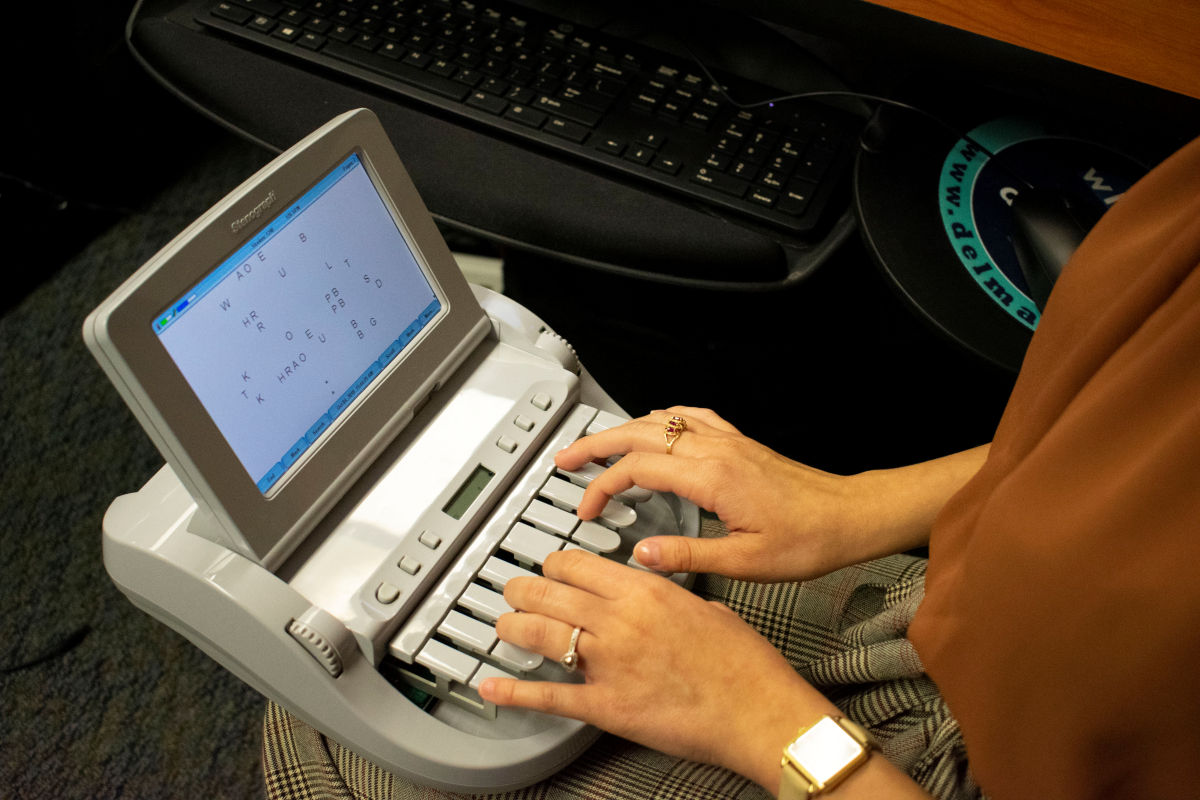Court reporting for Non-Legal Settings: Seminars
Court reporting for Non-Legal Settings: Seminars
Blog Article
Recognizing the Vital Duty of Court Reporting in Legal Proceedings
Court coverage is frequently ignored, yet it's necessary in lawful proceedings. Let's explore the essential functions of court reporting and its value in the legal landscape.
The History of Court Coverage
Court coverage has a rich background that goes back to old human beings, where scribes made use of numerous techniques to catch spoken words. The earliest types of shorthand emerged in Greece around 400 BC, enabling theorists and politicians to tape-record speeches quickly. As you move via background, you'll locate that the Romans embraced similar techniques, refining them to record lawful process. By the 16th century, modern-day shorthand systems began to form, enabling stenotype reporter to create precise records effectively.
In the 19th century, the creation of the typewriter transformed the profession, making it less complicated to produce clear records. The intro of steno makers in the 20th century additionally advanced court coverage, enabling real-time transcription throughout trials. Today, stenotype reporter play a significant duty in legal proceedings, ensuring that every word talked in the court room is accurately documented. Recognizing this background highlights the relevance of court coverage in maintaining a fair legal system.
The Skills Required for Court Reporters
As a court press reporter, you require strong typing abilities to stay up to date with the fast-paced dialogue of legal procedures. Your capacity to listen attentively is simply as important, making certain every word is captured precisely. Understanding these skills is essential to supplying precise and trusted transcripts.
Skillful Inputting Abilities

Solid Listening Abilities
Solid paying attention abilities are essential for court reporters, as they should precisely record spoken words in genuine time. This skill assists you set apart in between audio speakers, comprehend legal lingo, and follow complex conversations. Eventually, solid listening skills make you an indispensable possession in lawful proceedings, making sure clearness and accuracy in the court record.
The Innovation Behind Court Coverage
In the domain name of lawful proceedings, technology plays a crucial duty in boosting the accuracy and effectiveness of court coverage. You're likely accustomed to the conventional stenotype device, however modern stenotype reporter currently utilize sophisticated software that integrates with these equipments, allowing real-time transcription. This means you can have instantaneous accessibility to the transcript as the proceedings unravel.
Digital audio recording is one more technological development that's obtaining traction. It captures every talked word, guaranteeing absolutely nothing is missed out on. Some press reporters make use of voice recognition software application, which can assist enhance the transcription process, though it still calls for human oversight for accuracy.
In addition, cloud-based storage space allows very easy access and sharing of records, improving partnership among legal teams. By leveraging these modern technologies, stenotype reporter can offer top notch, timely records that are essential for the legal process. Welcoming this technology not only improves your understanding but likewise assures dependability in legal documents.
The Court Coverage Process

As legal procedures unfold, the court reporting process comes to be essential in capturing every detail accurately. You'll discover that a stenotype reporter Website plays an important role by transcribing spoken words into written text in real-time. When you enter the court room, the press reporter is currently prepared, equipped with specialized devices like stenographic devices and audio recording gadgets.
Throughout the procedures, the reporter listens attentively, typing out every little thing said, from witness statements to attorneys' arguments. You may see them stopping briefly periodically to ensure clearness or to ask for a repeat if something wasn't clear. After the session, the reporter assesses the records, making necessary edits for readability.
This whole procedure not only guarantees a complete document but also prepares you for future referral during appeals or case testimonials. In the hectic atmosphere of a court, the court reporting procedure is crucial for preserving an exact account of occasions.
The Relevance of Precision in Transcripts
While a stenotype reporter's primary responsibility is to record spoken words, the accuracy of these records is crucial for the honesty of legal proceedings. When you're associated with an instance, you depend on accurate documents to comprehend the occasions and disagreements presented. Any type of errors in transcription can bring about misunderstandings, misinterpretations, or perhaps wrongful judgments.
Precise records ensure that every detail is recorded, offering a trustworthy record for courts, lawyers, and juries. This level of information is essential during charms or when referencing previous testimonies. If a records has inaccuracies, it can weaken the whole lawful process, possibly influencing results.
Moreover, exact transcripts support the rights of all events involved, advertising justness and transparency. Whether you're a legal representative preparing for trial or a witness showing on your testament, you can trust that the court press reporter's ability in precision plays a significant role in your case's success.
The Role of Court Reporters in Different Lawful Setups
Court press reporters play a vital role in various lawful setups, from trials to depositions and legal hearings. You'll find that their job guarantees every spoken word is properly captured, which is critical for the legal procedure. Understanding exactly how their responsibilities vary across these environments can highlight their influence on the justice system.
Court Reporters in Tests
In any legal trial, you'll discover that stenotype reporter play a necessary function in recording the process with precision and accuracy. They record everything spoken in the court room, ensuring that every word is documented for future reference. This record becomes vital for appeals, allowing greater courts to examine the trial's integrity. Stenotype reporter should maintain focus and speed, often utilizing customized devices to stay on par with fast-paced discussion. Their work supports legal representatives, courts, and courts by providing an official account of testaments and debates. If inconsistencies arise, the transcript offers as a reputable source to clarify what was said. Eventually, stenotype reporter help support the justice system, ensuring openness and liability throughout tests.
Depositions and Legal Hearings
Beyond trials, court press reporters additionally play a vital duty in depositions and lawful hearings. During these procedures, they catch every Resources talked word, making sure a precise document of testimonies and conversations. You'll locate that this precision is very important, as depositions often function as a foundation for later debates in court. Stenotype reporter supply real-time transcription services, allowing attorneys to comply with along and resolve any kind of concerns promptly. Their work boosts the effectiveness of legal hearings, making it simpler for all celebrations to refer back to the official document. Additionally, the records they produce can be significant for appeals and other legal procedures - court reporting. In other words, court reporters are important in maintaining the integrity and quality of the legal document in depositions and hearings.
Future Fads in Court Reporting
As technology remains to evolve, try this out the future of court reporting assures to be formed by cutting-edge devices and methods that improve accuracy and effectiveness. You'll likely see enhanced use synthetic intelligence and real-time transcription services, improving the reporting process. These improvements can aid you accessibility transcripts faster, which can be important for your lawful strategies.
Furthermore, integrating video conferencing and remote coverage will certainly come to be much more typical, permitting you to attach with stenotype reporter from anywhere (court reporting). This adaptability can make depositions and hearings more available, conserving both time and sources
You'll also notice an emphasis on digital recordkeeping, which simplifies the storage space and retrieval of transcripts. With cloud-based options, you'll have the capacity to share documents securely and team up with your lawful group in real-time.
Often Asked Concerns
What Is the Typical Salary of a Court Press Reporter?
The typical wage of a court reporter differs by location and experience, yet you can expect it to vary from around $50,000 to $80,000 yearly. Several aspects influence this revenue, including specialization and need.
Exactly how Do I End Up Being a Certified Court Press Reporter?
To end up being a qualified court press reporter, you'll need to finish a court reporting program, pass a certification test, and gain sensible experience. It's essential to stay upgraded on sector criteria and proceeding education and learning needs.
What Kinds of Cases Do Court Reporters Cover?
Court press reporters cover various instances, consisting of criminal tests, civil suits, depositions, and adjudication hearings. You'll find them documenting every little thing, ensuring precise records for judges, attorneys, and parties involved, catching every word spoken in lawful settings.
Are Court Reporters Required to Have a Level?
Yes, stenotype reporter generally need a degree or certification in court coverage. Many programs supply specialized training, guaranteeing you acquire the skills essential for accurate transcription and lawful documents in different setups.
Can Court Reporters Work From Another Location?

Report this page